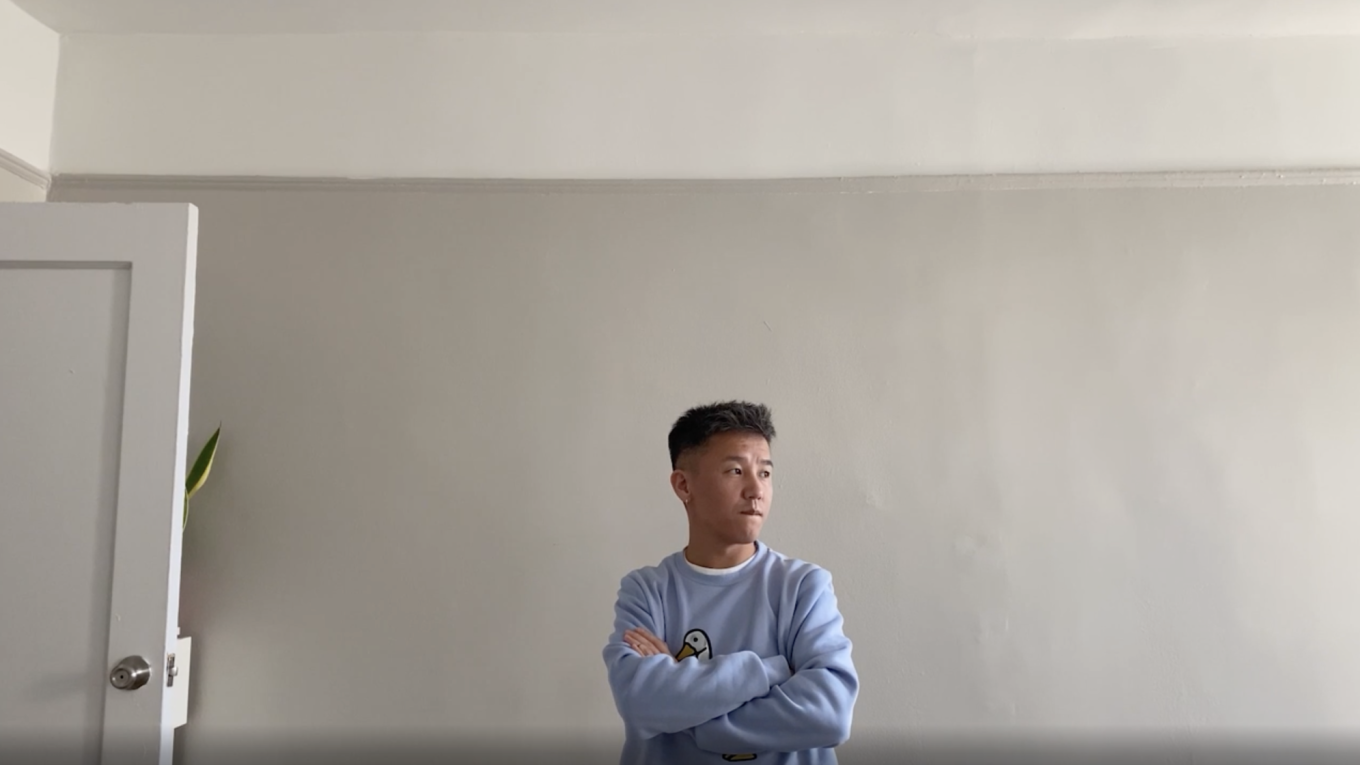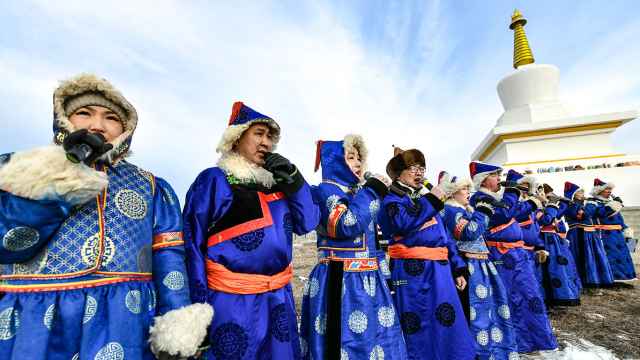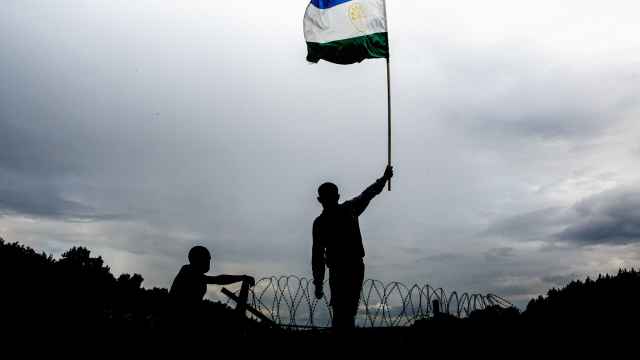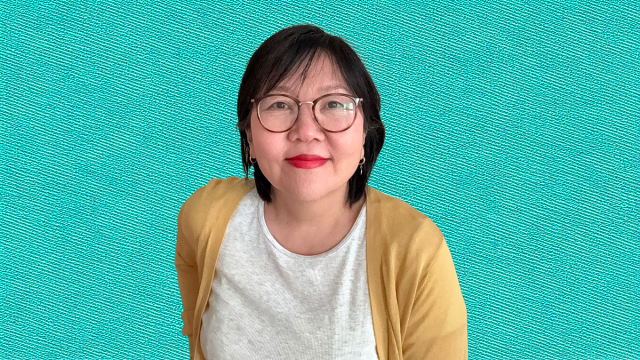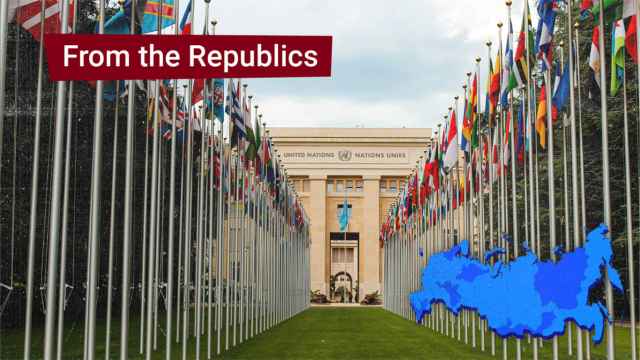This article was originally published by From the Republics.
On Monday Indigenous of Russia, a unique decolonial project aimed at fostering closer ties between Indigenous and ethnic minority communities living in Russia, premiered its new documentary “Intersections.”
Exploring the multifaceted discrimination faced by LGBTQ+ Indigenous people in Russia, “Intersections” ventures into territory previously unexplored by filmmakers and journalists working with other mediums.
“The idea to make this film came to life thanks to my dear friend and ally, activist Viktoria Maladaeva,” Alexey, an activist from the Siberian republic of Buryatia who is both one of the protagonists and directors of the film, told me, referring to Indigenous of Russia’s founder.
Alexey said he, Maladaeva and co-director Mira were hoping to make a movie that “shows the real life of Indigenous LGBTQ+ people in Russia” and “shows the enormous pressure that Indigenous queer people — especially those in remote regions — live under.”
“I was motivated by…the thought that so many queer and LGBTQ+ persons in Russia, especially Indigenous ones, are currently being held hostage by the murderous Russian regime, which tortures, imprisons and kills people,” said Alexey.
“I wanted to use my voice, my small platform to make us heard,” he added.
“Intersections” opens with Alexey’s story as he recounts his experience with intersectionality and struggle to find acceptance among members of Russia's LGBTQ+ community and among fellow Buryats.
The Kremlin often follows similar patterns when orchestrating repressions against LGBTQ+ and Indigenous communities.
Russia’s Justice Ministry labeled both the so-called “international LGBT movement” and the vaguely defined “anti-Russian separatist movement” as “extremist” over the past year. The designation means that anyone suspected of cooperation with these movements could face a lengthy prison term.
Last month, a total of 54 Indigenous organizations were named “extremist” as part of this wider ban — I discussed the wider implications of this move in last week’s edition.
Yet having a shared oppressor does not always translate into unconditional mutual solidarity.
Alexey is also forced to grapple with the fact that the Kremlin-encouraged discourse of ethnic Russians’ supposed superiority over other ethnicities living in the country has penetrated into the LGBTQ+ community.
Regularly seeing bios with a “no messages from Asians” disclaimer on dating apps and receiving backhanded compliments such as “you seem okay-looking for an Asian” or “you speak Russian well” are just a few things that Alexey, who now lives in the U.S., recalled from his past life in Russia.
Other protagonists of “Intersections” are a lesbian couple from the southern republic of Kalmykia and Tatar transgender man Mira.
In his narrative, Mira draws parallels between the global trend for the erasure of transgender identities and the erasure of ethnic minority and Indigenous identity in Russia. Skeptics, critics and haters often dub and dismiss both identities as a mere “fashion trend,” he explains.
Mira also grapples with his relationship with Islam.
Volga Bulgaria, the historical Bulgar state that many consider to be the direct predecessor of modern Tatarstan, adopted Islam as the state religion in 922.
In the centuries since, Islamic traditions became firmly woven into the fabric of Tatar cultural identity.
And while most Tatars who practice the religion dismiss the very existence of LGBTQ+ people, those dubbing themselves as “progressive” often advocate for a complete break with Islam and traditions influenced by it.
“It is important for me to keep a connection with Islam, even though I am not religious myself,” Mira says.
Like most projects undertaken by Indigenous and decolonial organizations from Russia — who consistently suffer from lack of funding — “Intersections” is almost entirely the product of volunteer efforts.
But what it lacks in production and video quality, it makes up for in originality.
While the protagonists of “Intersections” grapple with a variety of struggles and philosophical dilemmas, the filmmakers admit that they were only able to “scratch the surface” of this extensive topic in 30 minutes of screentime.
“The key message of our movie is that we, the people living on this planet, are many, we have a different past and present, we look different and we have differing souls, but we also have more things in common than not,” said Alexey.
“Each one of us has their own story…and I wish that all of us would learn to listen and hear the stories of others.”
You can watch “Intersections” (in Russian) here.
A Message from The Moscow Times:
Dear readers,
We are facing unprecedented challenges. Russia's Prosecutor General's Office has designated The Moscow Times as an "undesirable" organization, criminalizing our work and putting our staff at risk of prosecution. This follows our earlier unjust labeling as a "foreign agent."
These actions are direct attempts to silence independent journalism in Russia. The authorities claim our work "discredits the decisions of the Russian leadership." We see things differently: we strive to provide accurate, unbiased reporting on Russia.
We, the journalists of The Moscow Times, refuse to be silenced. But to continue our work, we need your help.
Your support, no matter how small, makes a world of difference. If you can, please support us monthly starting from just $2. It's quick to set up, and every contribution makes a significant impact.
By supporting The Moscow Times, you're defending open, independent journalism in the face of repression. Thank you for standing with us.
Remind me later.


